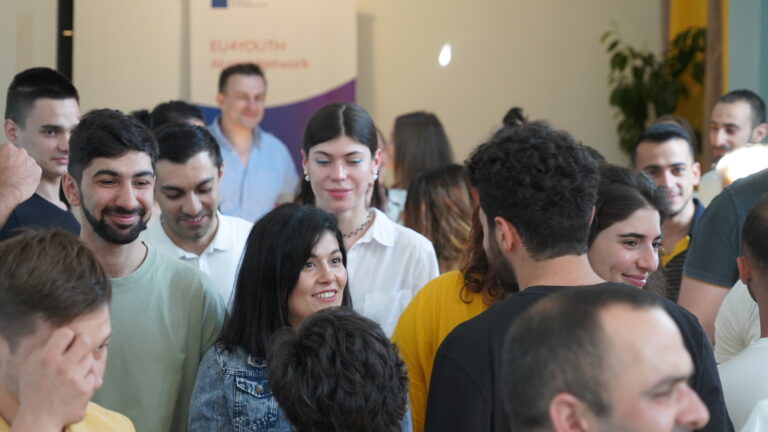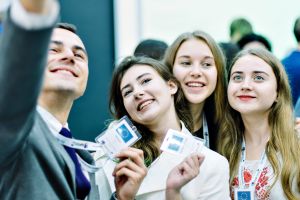
Putting the strengths of young people with Down’s syndrome at work through the EU4Youth Alumni Network
Two young activists from Azerbaijan took up the challenge to address the ignorance and misinformation surrounding people with Down’s syndrome (DS), and to reduce the discrimination they suffer as a result. With the 46+1 project designed through the EU4Youth Alumni Network, Alishir and Sabina got to work directly with young people with DS to help them put their educational strengths to work.
During a visit to Baku’s Rehabilitation Centre for People with Down’s syndrome, Alishir Boyukkhanli, a third-year student at Azerbaijan State University of Economics and the lead behind Modern Azerbaijan Youth, noticed that young people with DS had very empathetic relationships with each other, but noted that they didn’t have such supportive and confident relationships with other people. He observed that the main difficulty seemed to be with their communication skills rather than anything else, and it was this realization that inspired the 46+1 project.
His fellow EU4Youth Alumna Sabina Mammadova, a science teacher at the European Azerbaijan School and one of Theirworld’s Global Youth Ambassadors was with him during the visit, so they decided to team up and tackle this issue.
Alishir and Sabina have had a chance to benefit from various opportunities for youth in Azerbaijan and joined the Network to bring education to those outside the mainstream. While Alishir still actively participates in different Erasmus+ projects, Sabina took part in the “Youth workers for Peaceful Conflict Transformation” project of the Erasmus+ in Bulgaria. She is also a mentor in the ‘Women in STEM” programme which is funded by USAID and UNDP Azerbaijan.
“People with DS are heavily discriminated against in terms of training opportunities and getting a job,” explains Alishir, “Young people with DS often encounter difficulties in putting into practice the abilities acquired in their educational paths.” With this in mind the pair set out to put things right.
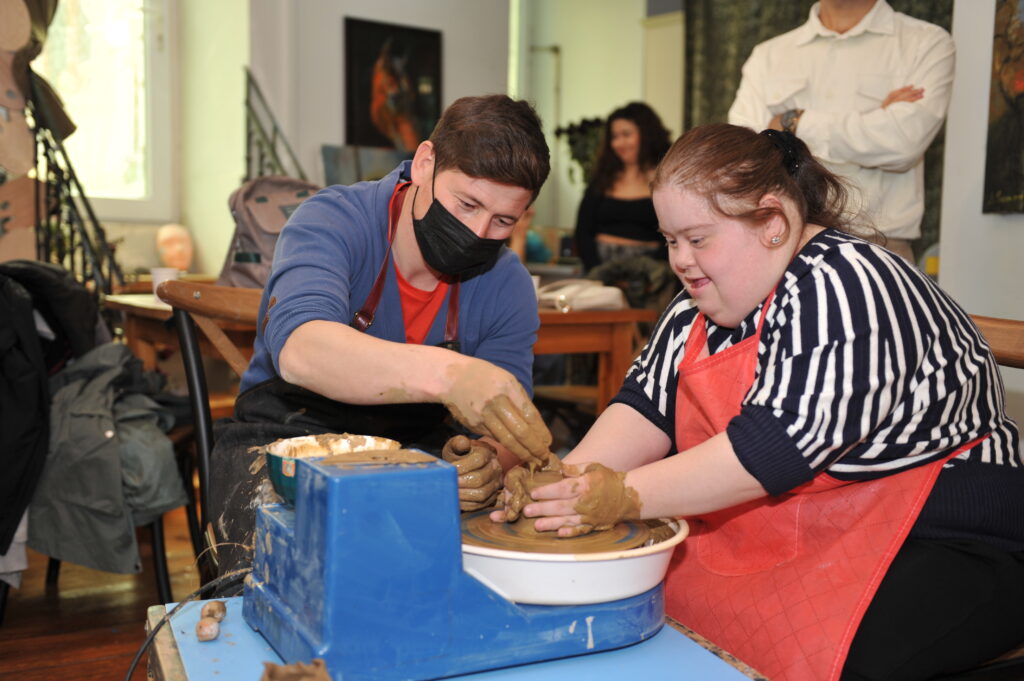
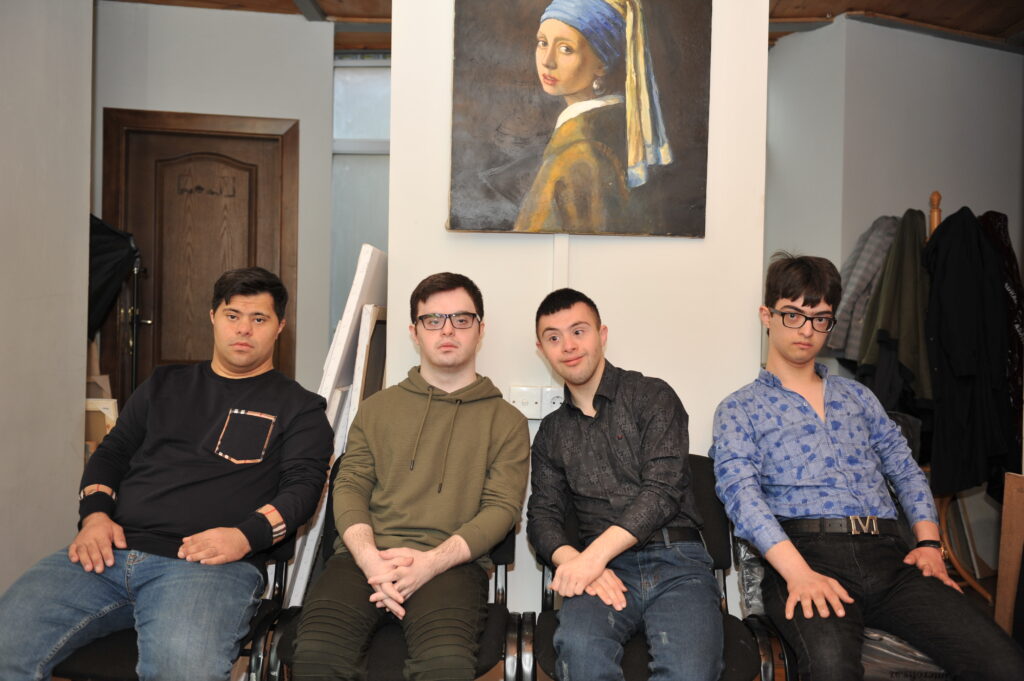
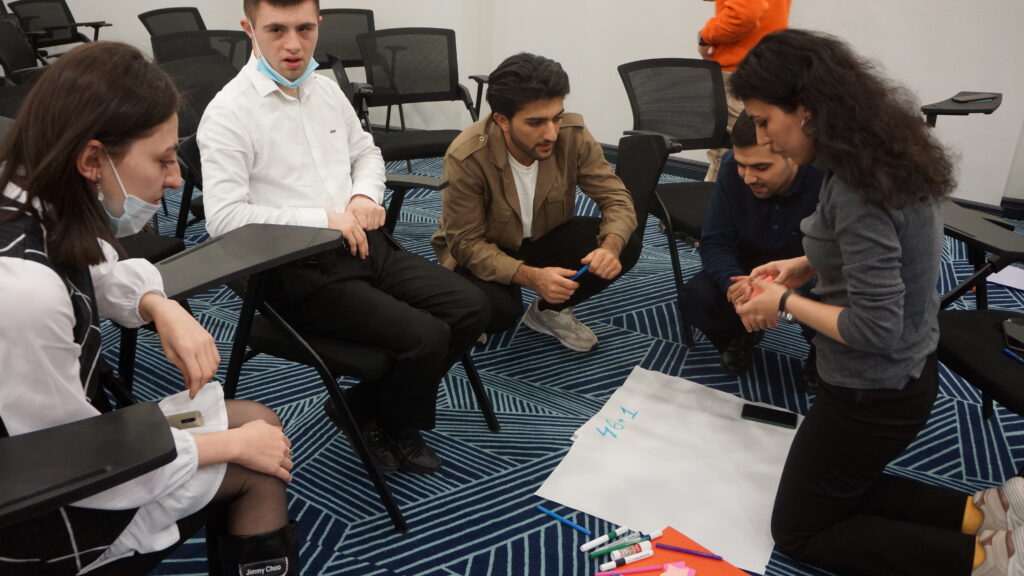
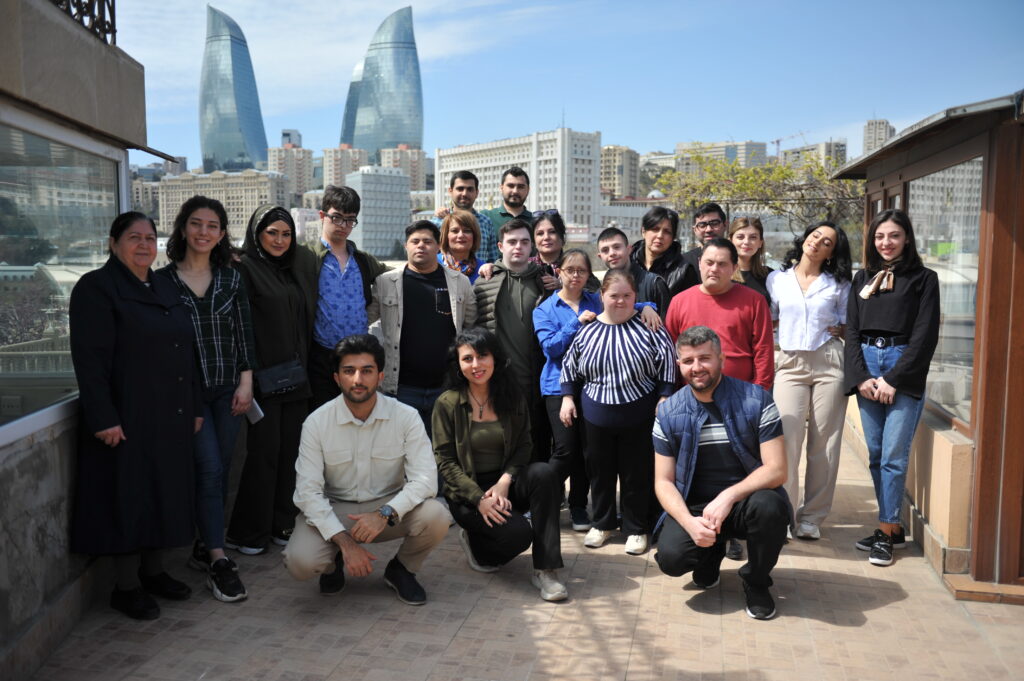
The project created two groups with 10 young people in each. One group contained people with DS and the other was made up of people without it. The project’s name 46+1 is meant to describe both: typically, a baby is born with 46 chromosomes, and a baby with DS would have 47.
The problems young people with DS face also affect their wider families, and, due to the prejudices, social exclusion can become a vicious cycle. These two Alumni aimed to change that: “We wanted to develop the social skills of young people with DS, to accelerate their integration into society, to support their access to education and employment.”
Involving the families of the people with DS, they ran art therapy trainings and pottery classes to improve fine motor skills and allow the participants to show off their newly gained knowledge. Combining the two groups allowed everyone to get to know one another, find out how to communicate with each other, and most importantly, make friends.
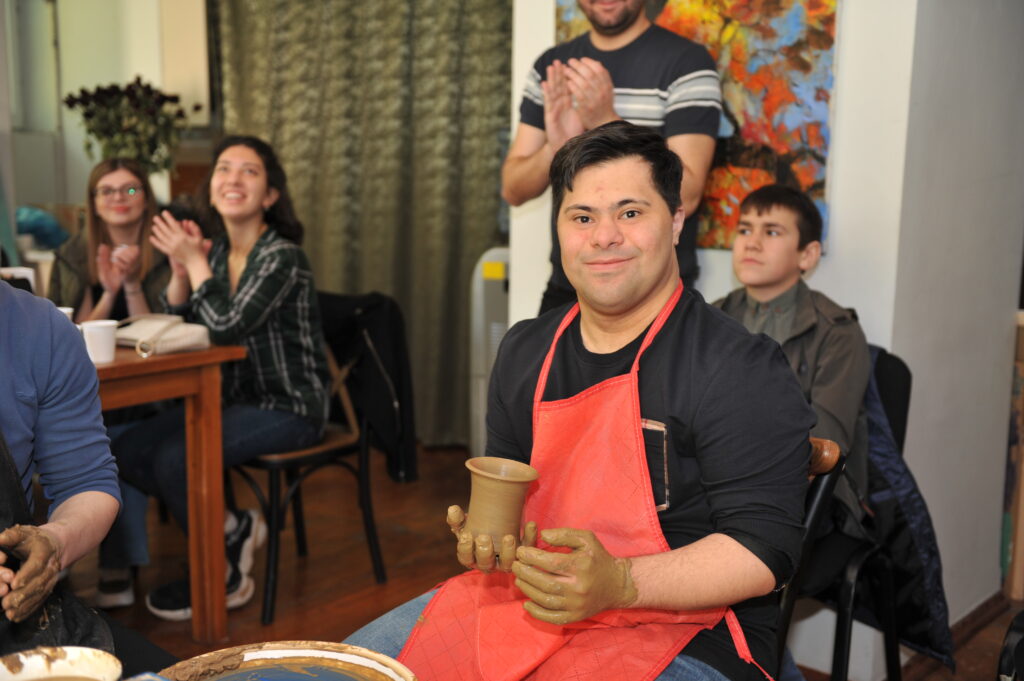
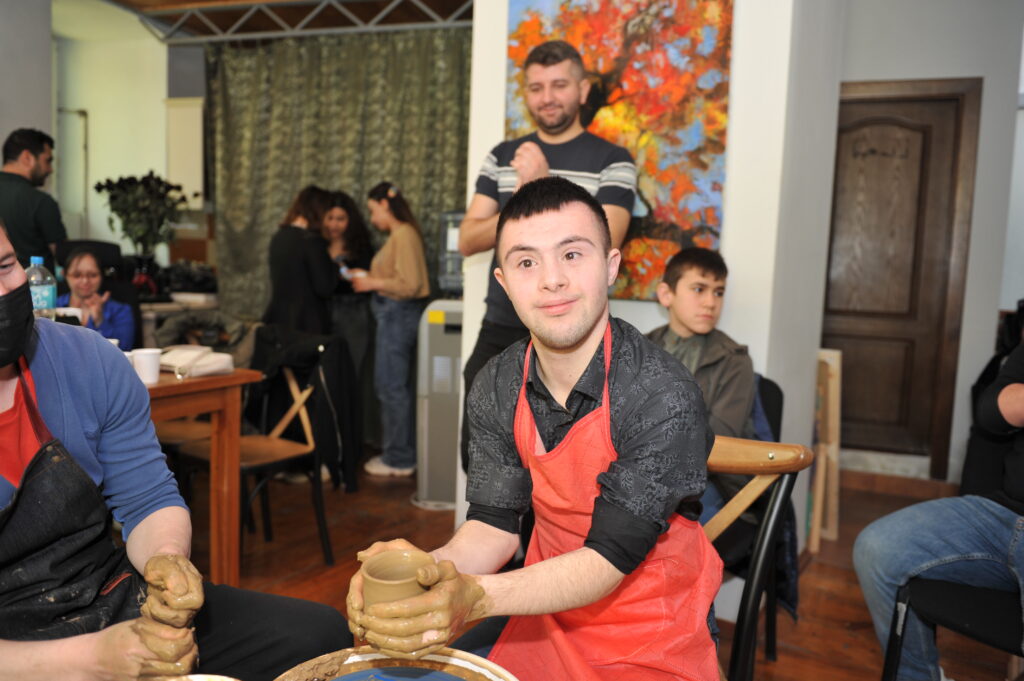
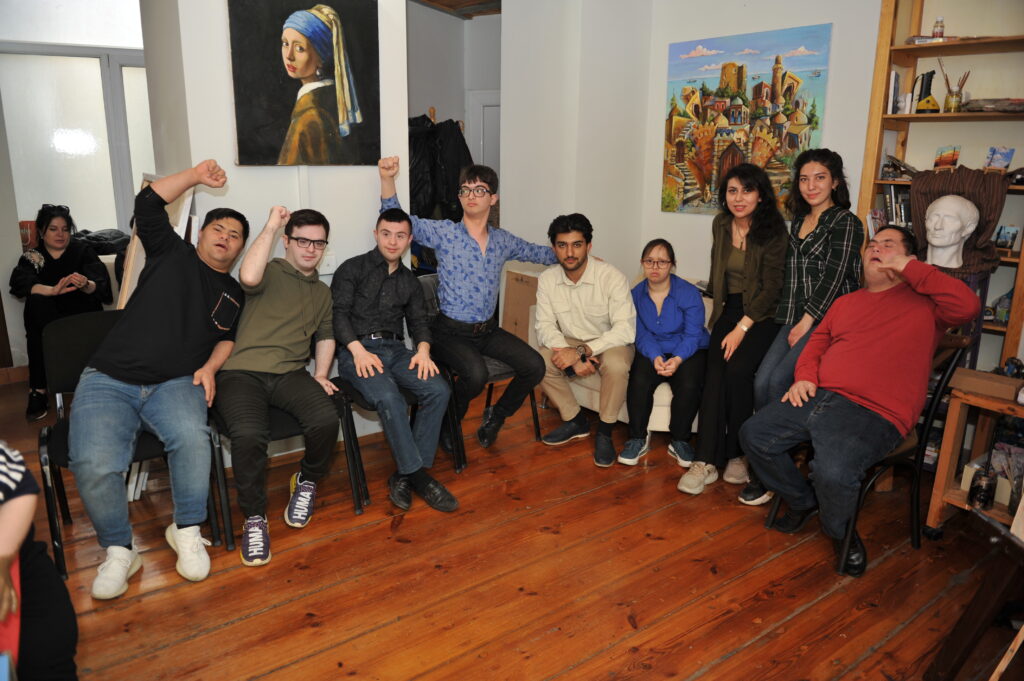
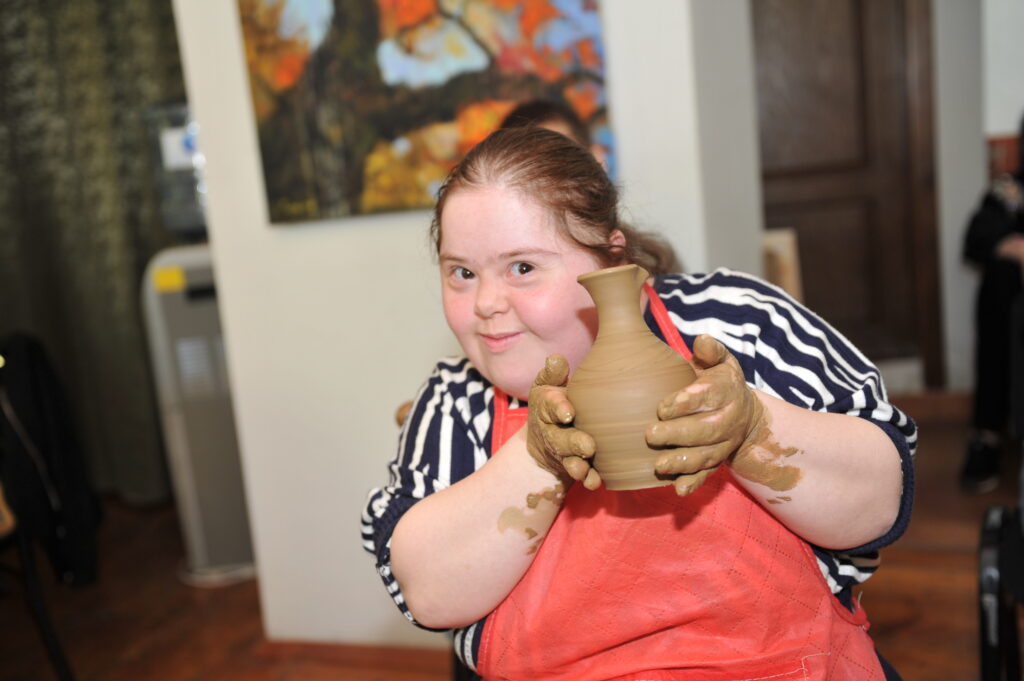
The 46+1 project established a collaboration with the “Short-term inclusive vocational training” of the UNDP, and the Ministry of Education of Azerbaijan to provide the participants vocational skills for jobs. The 10 young people with DS will be also encouraged to apply for a vocational training course organised by the UNDP as the project is now coming to an end. Some of the participants have already started vocational courses, and aim to find jobs in the near future.
The plan is also to continue using the 46+1 project’s social media channels to speak up about people with DS and the opportunities on offer for them. “We aim to continue our meetings with them and to make this community grow even more,” ads Sabina.
Alishir is equally hopeful for the future: “In my opinion, people with DS can be more active in society in the future in Azerbaijan. The availability of vocational training opportunities for people with DS will greatly contribute to this. I hope that we will soon see people with DS working in fields that are important to society.”
MOST READ
RELATED PROJECTS
SEE ALSO

No, time is not on Russia‘s side
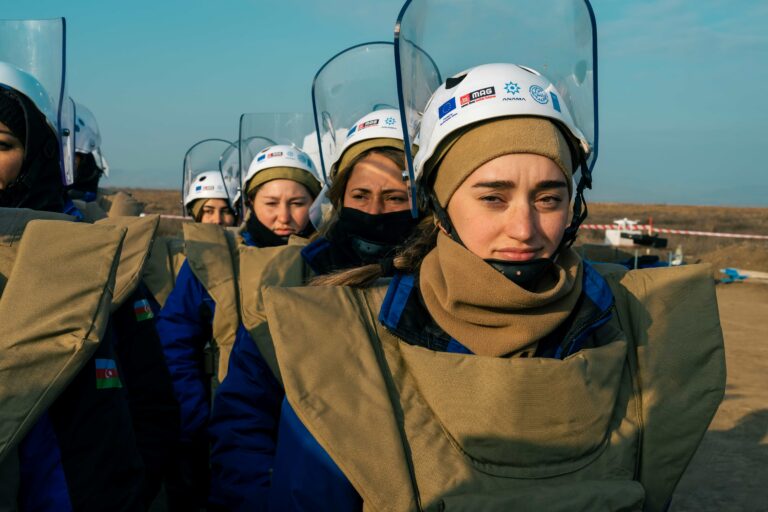
I have no regrets: the Azerbaijani women trained to clear mines
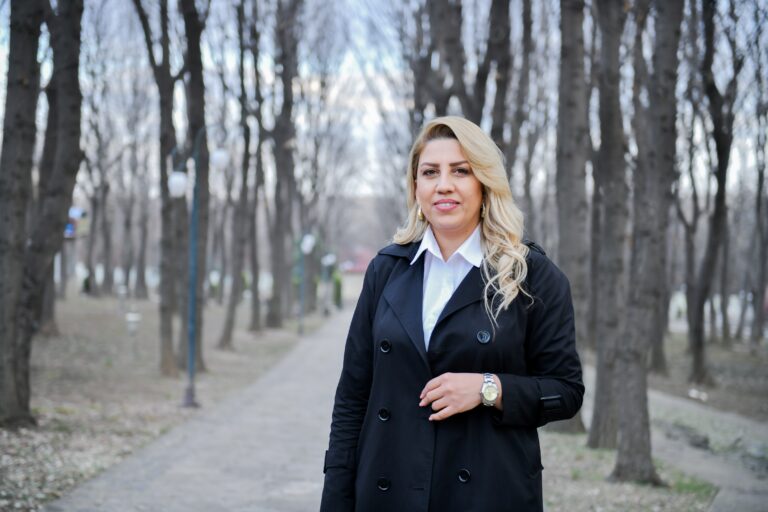
Turning a hobby into business: how Vusala Akhmadova from Tovuz helps women and children develop

Be one step ahead of a hacker: check simple cybersecurity tips!
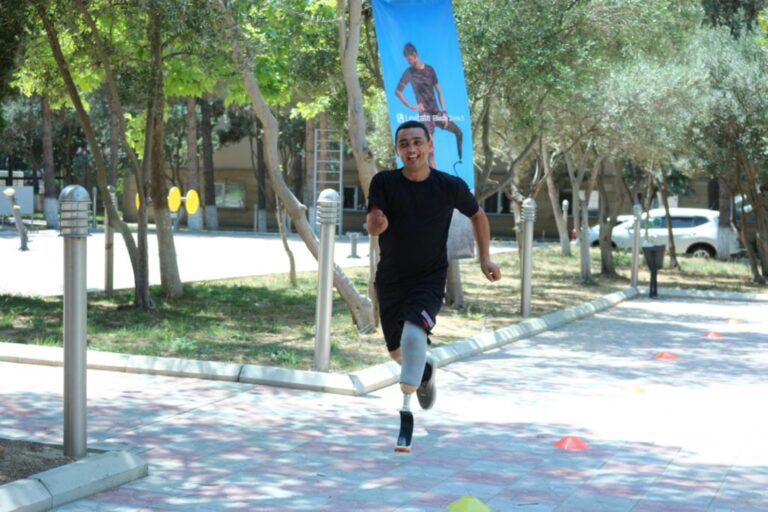
A chance for a better life: restoring justice for people with disabilities in Azerbaijan
More campaign pages:
Interested in the latest news and opportunities?
This website is managed by the EU-funded Regional Communication Programme for the Eastern Neighbourhood ('EU NEIGHBOURS east’), which complements and supports the communication of the Delegations of the European Union in the Eastern partner countries, and works under the guidance of the European Commission’s Directorate-General for Neighbourhood Policy and Enlargement Negotiations, and the European External Action Service. EU NEIGHBOURS east is implemented by a GOPA PACE-led consortium. It is part of the larger Neighbourhood Communication Programme (2020-2024) for the EU's Eastern and Southern Neighbourhood, which also includes 'EU NEIGHBOURS south’ project that runs the EU Neighbours portal.

The information on this site is subject to a Disclaimer and Protection of personal data. © European Union,








